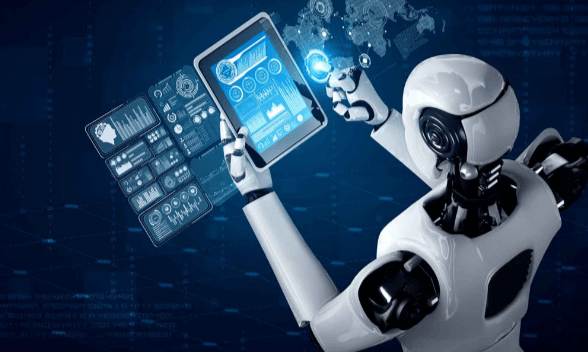Demystifying Machine Learning: The Engine Powering Most AI Applications

Introduction
Machine learning (ML) has emerged as a transformative force in the realm of artificial intelligence (AI), driving innovations across various industries. Understanding the basics of machine learning is crucial for grasping how AI applications function and impact our daily lives. This article provides an overview of ML, how it works, its applications, and what challenges it faces. If you are a fresher or a qualified professional aspiring to learn ML in view of the popularity this technology commands, read on before you enrol for an Artificial Intelligence Course.
What is Machine Learning?
At its core, machine learning is a subset of AI that focuses on building systems capable of learning from data, identifying patterns, and making decisions with minimal human intervention. Unlike traditional programming, where explicit instructions are given to perform a task, ML algorithms learn from examples and improve over time. How good ML algorithms are at learning is what determines the quality of ML algorithms. An inclusive AI Course in Bangalore, Chennai, Delhi or Hyderabad will equip learners to develop ML algorithms that are capable of learning from past usages.
How Does Machine Learning Work?
The process of machine learning involves several key steps:
- Data Collection: Gathering a large amount of relevant data is the first step. This data can be in various forms, such as text, images, or numerical values.
- Data Preparation: Cleaning and preprocessing the data to remove noise and inconsistencies. This step often includes normalising data, handling missing values, and converting data into a format suitable for training. Note that data collection and preparation are basic steps in data analytics and before you enrol for an AI Course in Bangalore or elsewhere, ensure that you have some background in processing data for analysis as these steps might not always be part of an AI course.
- Model Selection: Choosing an appropriate machine learning model based on the nature of the problem and the type of data available. Common models include decision trees, support vector machines, neural networks, and more.
- Training: Feeding the prepared data into the model to learn the underlying patterns. The model adjusts its parameters iteratively to minimise errors and improve accuracy.
- Evaluation: Assessing the model’s performance using a separate set of data. Metrics such as accuracy, precision, recall, and F1 score are used to evaluate how well the model performs.
- Deployment: Implementing the trained model in a real-world environment where it can make predictions or decisions based on new data.
Applications of Machine Learning
Machine learning powers a vast array of AI applications that have become integral to modern life. ML-powered AI has several applications specific to various domains. For professionals, a domain-specific Artificial Intelligence Course that is tailored for their specific domain will be an effective career booster. However, one needs to have some knowledge of the basic concepts of ML and AI before enrolling for such specialised courses.
- Healthcare: ML algorithms analyse medical records and imaging data to assist in diagnosing diseases and predicting patient outcomes.
- Finance: Fraud detection systems use ML to identify suspicious transactions in real-time.
- Retail: Personalised recommendations and dynamic pricing models enhance customer experiences and optimise sales.
- Transportation: Autonomous vehicles rely on ML for object detection, navigation, and decision-making.
- Entertainment: Streaming services use ML to recommend content based on user preferences and viewing history.
Challenges and Future Directions
Despite its successes, machine learning faces several challenges. Ensuring data privacy, mitigating biases in algorithms, and improving interpretability are ongoing areas of research. As the field evolves, advancements in quantum computing and neuromorphic engineering hold the promise of even more powerful and efficient ML systems.
Read also PlstankTV: Revolutionizing Entertainment in the Digital Era
Conclusion
In conclusion, machine learning is the driving force behind many AI applications, continuously shaping the future of technology. By demystifying its principles and applications, we can better appreciate its role in our rapidly advancing digital landscape.
For More details visit us:
Name: ExcelR – Data Science, Generative AI, Artificial Intelligence Course in Bangalore
Address: Unit No. T-2 4th Floor, Raja Ikon Sy, No.89/1 Munnekolala, Village, Marathahalli – Sarjapur Outer Ring Rd, above Yes Bank, Marathahalli, Bengaluru, Karnataka 560037
Phone: 087929 28623
Email: enquiry@excelr.com




